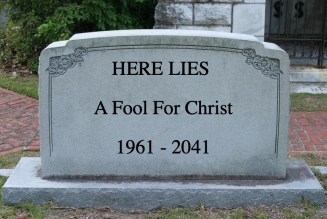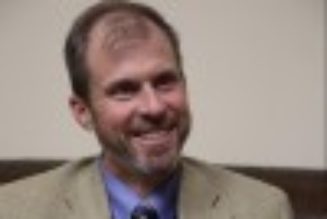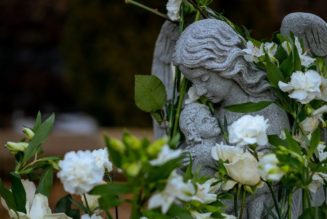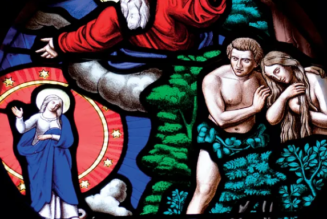In the coming week, many American families, children, and loved ones will be preparing for our annual observance of Father’s Day. As the national holiday approaches, we find ourselves still enmeshed in moral uncertainties, civil disturbances, and confusion over the future.
Such a restless state of affairs in one of the most powerful countries in the world is itself a source of bewilderment. How has this happened? Could these things have been prevented?
As families coordinate efforts to honor the fathers in their homes, do these efforts point us to some aspects of an answer? Does Father’s Day give us some insights into how our troubles have come about? Can it help us to find resolution and healing to the ills of our day?
The Christian message has always been about self-governance. The core of Christian belief can be found in the concept of a communal autonomy, which means we hold a self-will, but one that is not sovereign. We have a self-will that is always directed towards relationship with others.
This is the delicate balance between self-possession and self-donation. We exist as ourselves, but we only truly know ourselves by being in relationship with others. Paraphrasing a philosopher, we could say: We love, therefore, we are. Or rather: We are loved, therefore, we are.
These notions lead us to a fuller awareness of freedom. The human person’s self-governance gives an internal push to actualize freedom. Freedom is understood, therefore, not as the power to do whatever we want, but the power to do what is right and good. Freedom frees us from both self-isolation on one extreme or self-abasement on the other.
Freedom is the juice of the soul that empowers and strengthens it to boldly hold itself, while also generously giving itself to others.
This creed of self-governance was picked up by the Founders of our country in their daring experiment to create a nation of self-governed citizens. No longer would Americans be governed by an earthly monarch, they would govern themselves. Committed to such a concept, the Founders insisted on both education and strong virtue. They relied on these in order for the American experiment to work.
While education can be given in many places and virtue can (and should) be learned by the mentoring of several different people in diverse roles, both should properly begin in the home. And, by both Christian and American traditions, the teaching of virtue should begin with fathers. As the heads of their households – united with their wives, who are co-equal with them in dignity – fathers are to exemplify a life of virtue. They are to tutor their children in the ways of true love and selfless service.
As fathers guide their children in the ways of right conduct and noble behavior, they are to offer encouragement, affirmation, and a safe environment. They are also to exercise discipline and admonition. Fathers are to instruct, correct, and teach. They should protect and defend their households. Fathers are called to provide and care for their children and families.
The Christian faith’s emphasis on fatherhood is one of the principal factors that makes it such a reliable source for civic virtue, solid family life, and selfless service. And, in similar fashion, the American republic’s stress on fatherhood was one of the main sources of its stability and sure foundation.
In light of its preeminent historical role, therefore, fatherhood should be esteemed and honored. Its necessary place in civil society should be publicly reinforced and seen as essential to the well-being and common good of society.
The Book of Proverbs teaches us that an undisciplined child becomes a serpent at its father’s feet. Without discipline and virtue, a child is left to its own devices and is ruled by its own passions and the preferences of the day, however dark or wayward.
When a father is absent or disengaged, a mother is left on her own. A natural partnership is broken. A father’s role, along with its instruction and discipline, is lost to posterity.
Our country faces a crisis of fatherhood, with many families devoid of a father’s presence and children without the help of their guidance and love. In such a situation, a fatherless generation has emerged. They scream and yell for attention. They break rules and destroy property seeking boundaries and discipline. Such a generation becomes easy prey to ideologues and extremism. They cry out for a father’s love and for paternal direction, but such cries go unheard and echo without acknowledgement.
In the void that’s caused by such unanswered cries, our fatherless generation has fulfilled the Biblical warning and become serpents at their father’s feet. But not only at the feet of the missing fathers in their homes, but also at the feet of their homeland.
Of all the causes and reasons for the violent behavior of our age, and for the widespread destructive ideologies among America’s youth, let’s not miss the cause that’s closest to home. Let’s not forget the consequences of our missing fathers.









